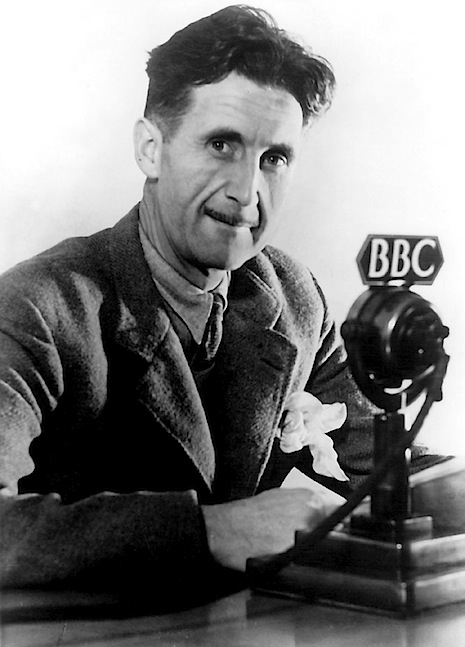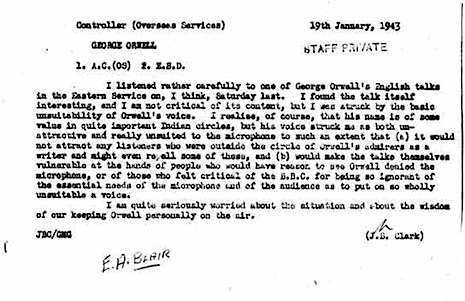
When George Orwell died at the age of forty-six on January 21st 1950, he was considered by some of London’s fashionable literary critics as a marginal figure—“no good as a novelist”—who was best known for his essays rather than his fiction.
This quickly changed in the years after his death when his reputation and popularity as a writer grew exponentially. Over the past seven decades he has come to be considered one of the most influential English writers of the twentieth century.
This massive change in opinion was largely down to Orwell’s last two books Animal Farm first published in 1945, and Nineteen Eighty-Four published the year before he died. The importance of these two novels has enshrined Orwell’s surname, like Dickens, Kafka and more recently J. G. Ballard, into the English language as a descriptive term—“Orwellian”—for nightmarish political oppression, while many of his fictional ideas or terms contained within Nineteen Eighty-Four have become part of our everyday language—“Big Brother,” “Room 101,” “newspeak,” “doublethink,” “thoughtcrime” and so on.
Both of these books have become essential texts for radicals and conservatives in their individual campaigns against perceived invasive and totalitarian governments. After the Second World War Animal Farm and Nineteen Eighty-Four were considered damning critiques of Stalinist Russia, and their subject matter limned the growing paranoia between East and West during the Cold War. When Edward Snowden exposed the covert surveillance by US intelligence agencies on millions of Americans, copies of the book were sold by the thousands. Nineteen Eighty-Four‘s flexibility of interpretation has meant the book has been used to condemn almost everything from the rise of CCTV and wind farms, to the George W. Bush/Tony Blair war against “the axis of evil,” the rise of jihadist Islam, the spread of capitalist globalization, Vladimir Putin’s political “grand vision”, and (rather laughably) “Obamacare.”
But it wasn’t the meaning of Orwell’s writing that caused the BBC to sniff condescendingly about their employee during the 1940s, rather it was his actual voice which was considered by Overseas Services Controller, JB Clark as “un-attractive” as this secret internal BBC memo reveals:
Controller (Overseas Services) 19th January, 1943
GEORGE ORWELL STAFF PRIVATE
1. A.C. (OS) 2. E.S.D.
I listened rather carefully to one of George Orwell’s English talks in the Eastern Service on, I think, Saturday last. I found the talk itself interesting, and I am not critical of its content, but I was struck by the basic unsuitability of Orwell’s voice. I realise, of course, that his name is of some value in quite important Indian circles, but his voice struck me as both un-attractive and really unsuited to the microphone to such an extent that (a) it would not attract any listeners who were outside the circle of Orwell’s admirers as a writer and might even repel some of these, and (b) would make the talks themselves vulnerable at the hands of people who would have reason to see Orwell denied the microphone, or of those who felt critical of the B.B.C. for being so ignorant of the essential needs of the microphone and of the audience as to put on so wholly unsuitable a voice.
I am quite seriously worried about the situation and about the wisdom of our keeping Orwell personally on the air.
JBC/GMG (J.B. Clark)
The reason Old Etonian Orwell’s voice may not have sounded attractive was that he had been shot in the neck during the Spanish Civil War. However, Orwell got his own back on the BBC by naming Nineteen Eighty-Four‘s infamous torture room after “Room 101” in Broadcasting House, where he had to sit through long, tedious meetings about political vetting.

The only known footage of George Orwell (or Eric Blair as he was then) can be seen in this clip of him playing the “Wall Game” with fellow pupils at Eton—he’s fourth on the left and in the clip between a very young Melanie Griffiths and Grace Kelly.